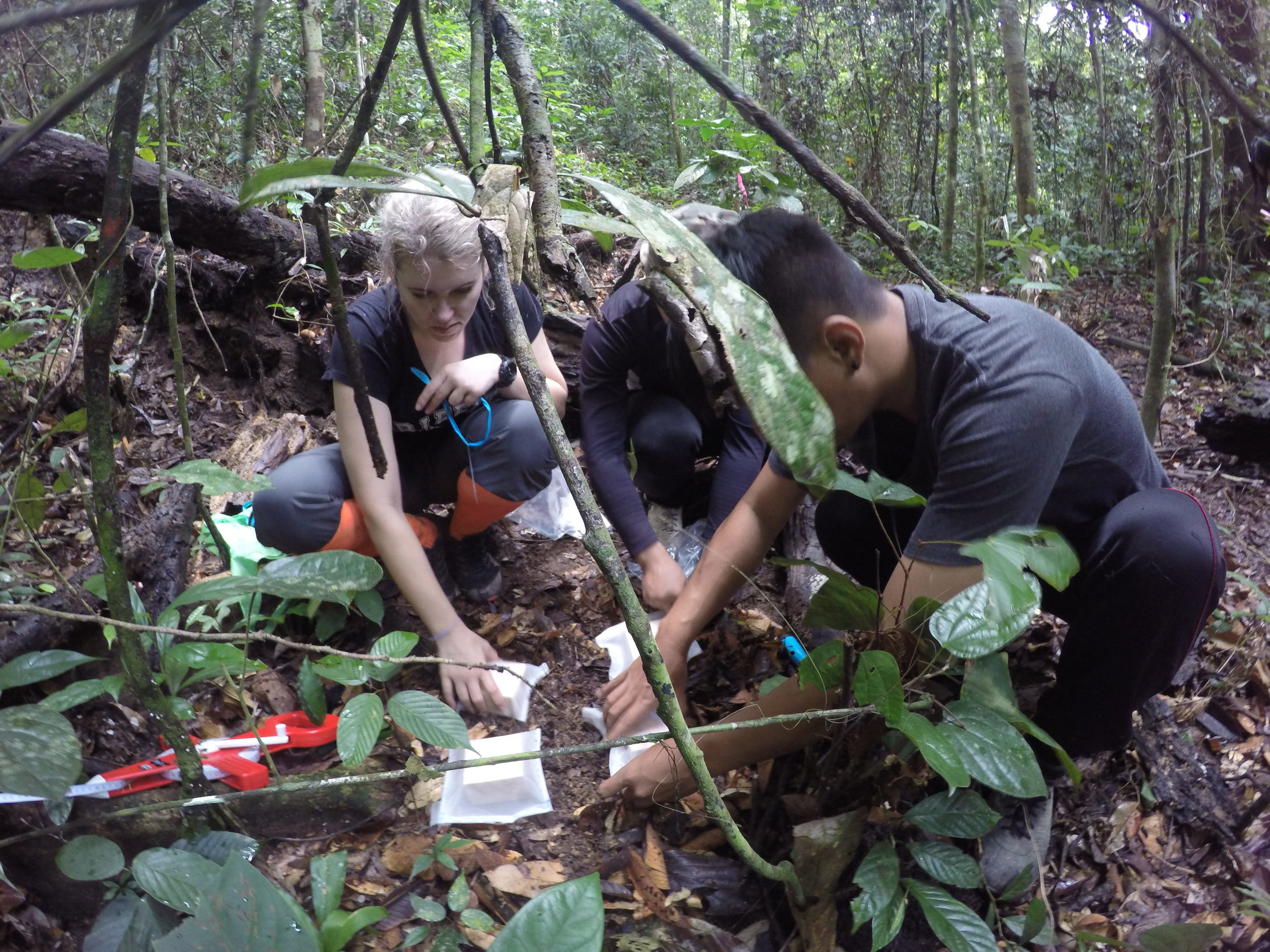La biodiversité de La Réunion
We are back in Reunion for another month of field work. We will be collecting insects and collaborating with local scientists to investigate biodiversity and biogeography on this oceanic island.
Here some pics and videos from our last trip:
Panther chameleon
Tropical storm Fakir
Waterfall at Cascade du Chien
New Paper Alert! Ants dominate waste management in tropical rainforests
The Termite Ant Research Team has a new paper out in The Journal of Animal Ecology:
Ants are the major agents of nutrient redistribution from tropical rainforests.
Here is the press release (from The University of Liverpool):
"A study by the University of Liverpool, in collaboration with the Natural History Museum, has found that ants are responsible for moving more than half of food resources from the rainforest floor, playing a key role in maintaining a healthy ecosystem.
A large scale study of the rainforests of Malaysian Borneo by Liverpool researchers found that ants alone were responsible for removing more than half of food resources from the rainforest floor.
The rest of the waste was removed by all other animals combined, including mammals, birds and other vertebrates and invertebrates. Resources and waste which ants remove include dead animal bodies, seeds and fruits.
Liverpool ecologist, Dr Kate Parr, said: “The movement, consumption and recycling of dead organic material in ecosystems is important because it facilitates nutrient redistribution and decomposition. Because ants collect waste products and take them to their nests, they create hotspots of nutrients where plants and microbes thrive; this maintains a diverse and healthy soil.
The study showed that in the absence of ants no other animals can compensate for this role. Therefore, if ants weren’t carrying out waste removal, dead organic material would build up and decompose more slowly in situ creating a more homogenous, less diverse soil environment.
Lead author of the study, Dr Hannah Griffiths, also with the University’s School of Environmental Sciences added: “This work is important because tropical rainforests are some of the most threatened ecosystems on the planet, losing species at an alarming rate.
“Understanding exactly what role different animals play in ecosystems is akin to putting in place pieces of an incredibly complex puzzle. The more pieces we have in place, the better we see the full picture and understand how the system functions. This in turn allows us to predict the consequences of species losses and create measures to mitigate the negative consequences of human impacts on ecosystems.”
The paper `Ants are the major agents of resource removal from tropical rainforests’ is published in the Journal of Animal Ecology (doi: 10.1111/1365-2656.12728)."
This paper has been covered by the Daily Mail, Phys.org, The Daily Ant and Nature.
September 2016
Here is a long overdue photo blog update from our last TART field trip!
We started our field trip with a visit to the new research facility at Imbak Canyon. This was a fun side trip to see the facility and a different part of Sabah. Imbak is very beautiful and the new facility is massive, perhaps a good place to do research in the future.
Back to Maliau, we set up multiple expeirments on our termite and ant suppresson plots.
We came across some amazing wildlife while working in the forest and went on some night walks to look for nocturanal wild life.
BES 2016
The Termite-Ant Research Team had a productive BES 2016 and saw some excellent talks, especially the plenaries from Anne Chao and Hugh Possingham.



Education owl at BES
I presented the work from a collaborative review of forest canopy science. This review incorporates expertise from 17 co-authors from around the world and synthesizes the recent advances in canopy science, providing an update on the newly expanded canopy crane network and suggesting future directions for canopy science. Below is a video I took going up the newly built canopy crane near Xishauangbanna Tropical Botanic Garden, Yunnan, China.






















































